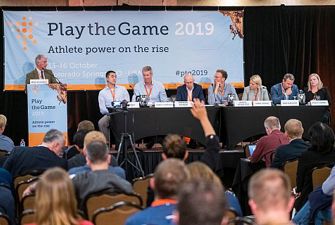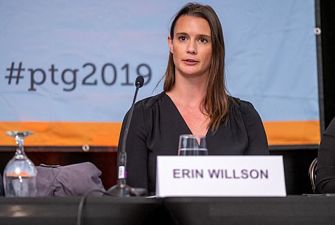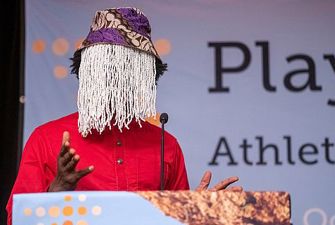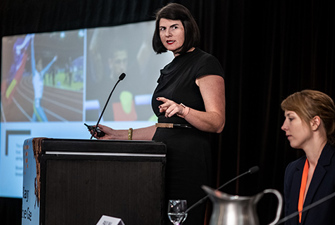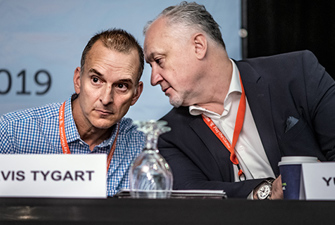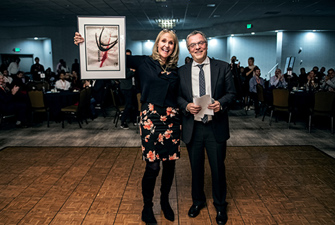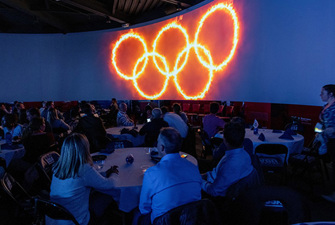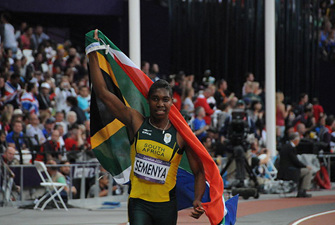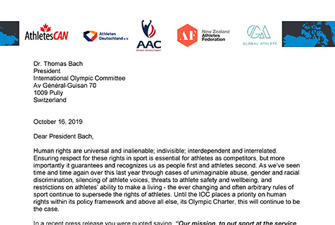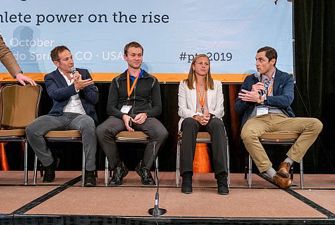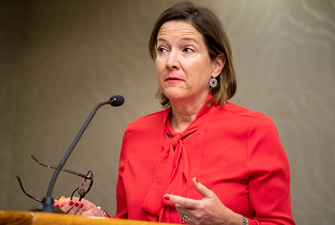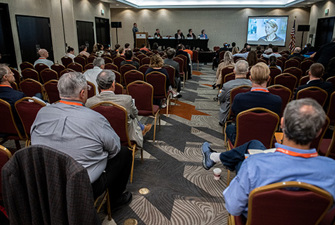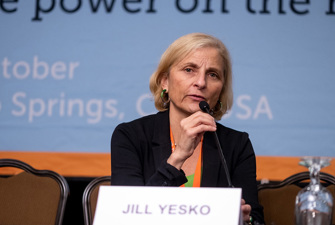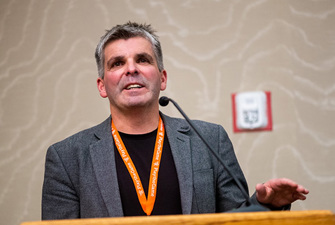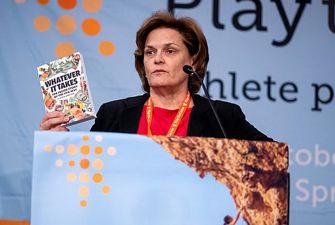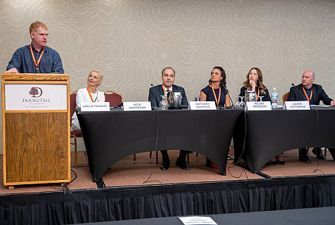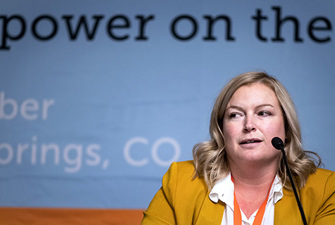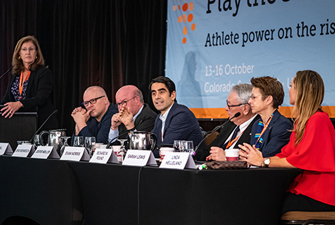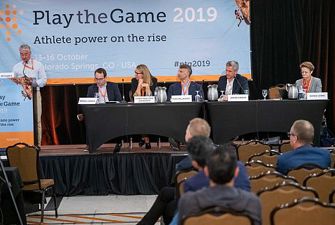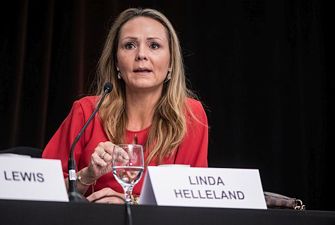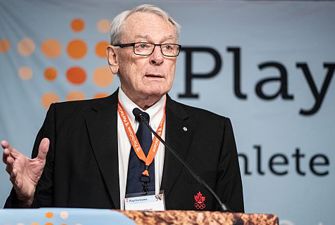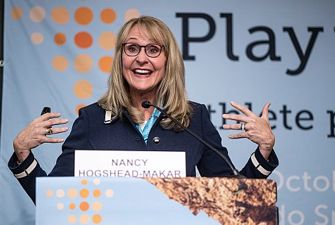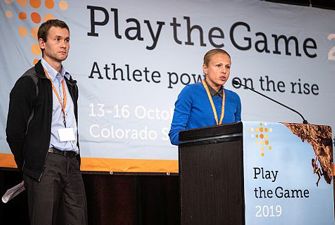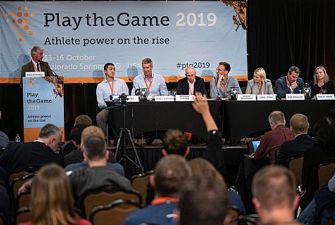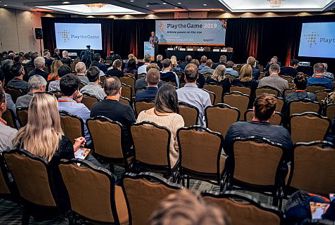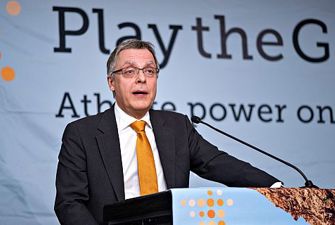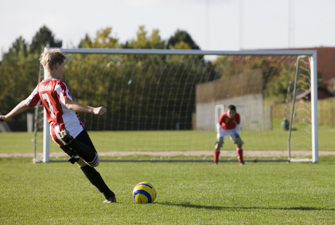NCAA must strive to benefit student athletes
At Play the Game 2019, a panel of NCAA experts discussed the future and the challenges the association faces. What is the role of the NCAA?
By Chase Jordan Howell & Jack Carlough, journalism students from University of Colorado Boulder
The timing couldn’t have been better for prominent National Collegiate Athletics Association (NCAA) voices to discuss current issues around amateurism and intercollegiate sport in the U.S.
Last week, the state of California passed the Fair Pay to Play Act, allowing NCAA athletes to get paid for their likeness sparking conversation around the United States. At Play the Game 2019, amateur athlete compensation was a highly contested topic.
Mark Cooper works for Jon Tibbs Associates (JTA), an Olympic movement communications agency. He was in the audience for the debate and noticed a parallel between NCAA and Olympic practices.
“It’s been really interesting because I’m someone who comes from an Olympic movement background and the NCAA is a remarkable system and so far it supports Olympic sports to an extraordinary degree,” said Cooper, who is attending his second Play the Game conference.
“Eighty percent of U.S. Olympians in 2016 were beneficiaries of the NCAA system. To be here in Colorado Springs, home of the Olympic committee, discussing collegiate sports and discussing the way collegiate sports support the Olympic movement and Olympians not just in the U.S., but around the world was really helpful. There are clearly some big challenges coming down the line, especially with people starting to really, really test the legal boundaries that were self-imposed but the NCAA’s efforts to carve out a niche for itself within the umbrella of amateurism.”
Those outside of the United States view the NCAA and collegiate sports as a bastion for developing athletes at the ages of which they can be heavily influenced, 18-24. Those that have been following college athletics in the United States know the NCAA is not an organisation to be admired.
NCAA grapples with its amateur status
One of the themes of the conference was this idea of amateurism and what it means to be an amateur. Chair of the discussion, Bradley David Ridpath, described amateurism as “an outdated concept rarely practiced or enforced anywhere in the world.”
The defense by the NCAA when asked why they don’t pay their athletes is that they are students before they are athletes and they must retain their amateur status if they want to compete in NCAA events. The actual definition for amateurism is not allowing pay for play but the reality is, as Ridpath puts it, “whatever the NCAA says it is.”
Future of college athlete compensation unclear
Speaking in favor of the NCAA and its practices was the Mountain West Conference’s Senior Woman Administrator, Carolayne Henry. She believes the NCAA has the athlete’s best interest in mind and the organization has received a poor public reputation. Part of their bad reputation stems from their refusal to compensate student athletes.
“I am here to tell you that as an NCAA, as an association, we’re working on the issues that David [Ridpath] mentioned,” Henry said.
”Will college athletics exist in the same format we know it? Maybe, maybe not, but take this into consideration: If we go to a full pay for play model, what, if at all, will it look like? How will that impact student athletes? It may not all be as positive as you might want to think because there are a lot of different layers to that that should be considered.”
Multiple audience members asked the question why we should trust the NCAA? And why is it no one trusts sports governing bodies? Begging the question if they have the athlete’s best interest in mind. The argument for the NCAA is that they are just a small part of intercollegiate athletics. The institutions and the conference make decisions too. Ridpath disputes that argument.
“Well the NCAA is its member institutions just as FIFA is its 215 countries that are members,” Ridpath said. “It doesn’t mean that Sepp Blatter didn’t have power, it doesn’t mean that Infantino doesn’t have power,” Ridpath said.
